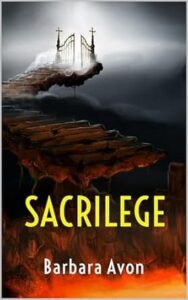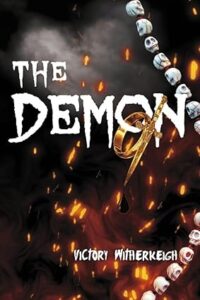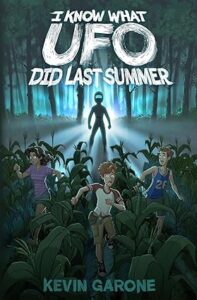Sacrilege by Barbara Avon
Self published, 2020
ISBN: 9798690309411
Available: Paperback, Kindle edition
Buy: Bookshop.org | Amazon.com
Sacrilege is a depressing psychological drama that takes you down, down, and further down. There are no monsters or boogeymen in this one, just the mental demons that inhabit the characters. It’s a pretty good read for those who prefer human interest/interaction stories.
Almost the entire story focuses on the two leads: wayward priest Cris Corelli, and Jules, the lady who owns the boarding house he stumbles into. The author sets the tone right out of the gate: mentally, these two are trainwrecks, for various reasons. As the story progresses, the death of someone close to both of them pushes Cris and Jules further down into depression. They start drinking and drugging to numb the pain, only finding minimal comfort in each other. However, it’s the best either of them can hope for, unless they somehow are able to use each other to pull out of their respective tailspins.
The stark manner in which the dialogue between Corelli and Jules is written is an unusual choice. Often, books like this rely on fairly long and in-depth conversations, as a way to explain how the characters became, and where they are heading. The author goes against the grain here, as most talks are fairly quick and clipped, not really revealing a lot about the characters. Then again, maybe they don’t need to, the characters’ actions may speak louder than any lengthy dialogue in this case. It’s an interesting choice for this type of book, and works reasonably well for the narrative, giving it a unique flavor.
I felt the “big reveal” at the end of the story was anticlimactic. You could tell it was supposed to be fairly important, due to Corelli’s actions after he discovered it, but it just didn’t seem like anything that should alter the story’s trajectory, or what the characters do for the rest of the book.
The bottom line is…this will appeal to a certain segment of readers. If you enjoy depressing psychological dramas, this might work for you. If your idea of horror is fast-paced, with monsters and supernatural craziness, then this probably isn’t your cup of black ichor.
Reviewed by Murray Samuelson







Follow Us!